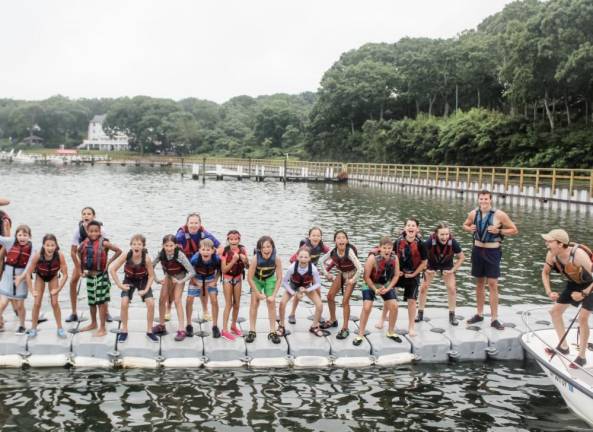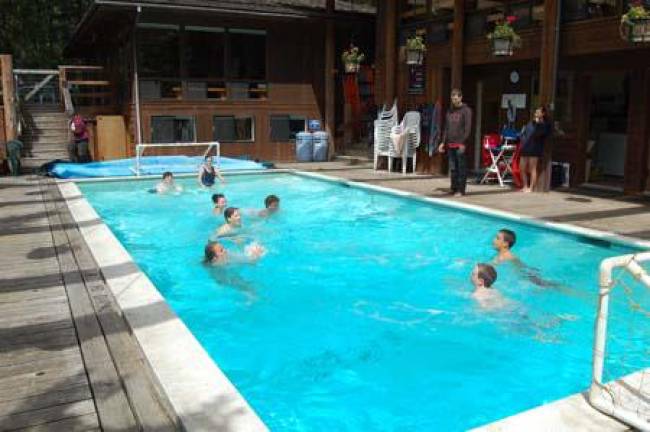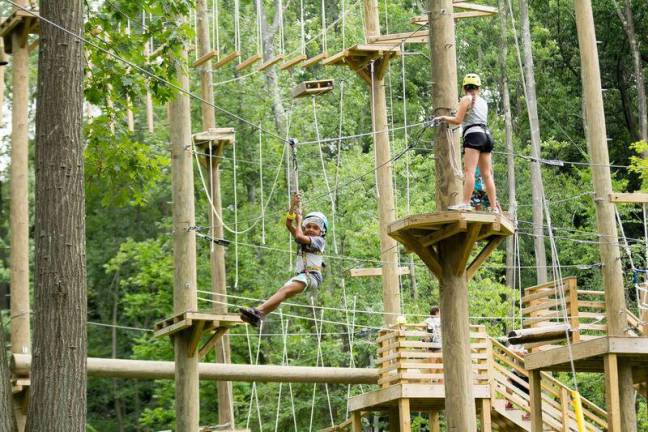Is Your Child Ready for Sleep Away Camp?
A lot goes into the decision of whether or not your child is ready for an overnight camp experience. Children are ready for sleep away camp experience at different ages and there is no one age that is correct. But here are some guildelines to help you and your child figure it out.



Are you beginning to think about overnight camp for your child? Overnight camp is an exciting experience where your child will gain independence, resilience and confidence while trying new activities and making new friends. There are many factors that go into this big decision. Here are some things to consider when deciding whether your child is ready for the experience.
Interest–Is your child asking about overnight camp or talking about friends who have already been? This is often the first sign that your child is interested and wants to learn more. Begin discussing what overnight camp is like and ask if this is something your child would be interested in.
Readiness–Readiness to go to overnight camp is important. Does your child enjoy being around other children? Does your child separate from you easily? Has your child had successful overnights at either a friend’s house or with a relative? Is your child able to get dressed and shower on their own? If the answer is yes, these are good indications that your child may be ready for overnight camp.
Age–Children are ready for an overnight camp experience at different ages and there is no one age that is correct. Some kids are ready at age eight while others are ready at 10 or 11. The key is whether your child is mature enough and emotionally ready to be away and is excited about the experience. It’s ok to be nervous or have worries but your child should be interested in going.
Session Length–There is no right session length for a first-time camper. Some kids do just fine going for the full summer their first year while others want to go for a shorter period of time. When choosing a camp, it is important for families to choose a camp that offers the session length you would like for all future summers and not just the session length offered for first time campers. The good news is there are many different camps to choose from with varying session lengths depending on what works for your child and family.
Preparation–Once you choose a camp, preparing your child will help ensure that it is a positive experience. This does not mean you need to speak about sleepaway camp each day from January – June but doing things to get your child ready will help get buy in. Set up a zoom with the camp director if you or your child has questions or is getting nervous. Make sure to mark the calendar for any pre-camp get-togethers the camp is offering or reach out to the director about getting the information of a child who will be in the same bunk as yours for a playdate. Shopping together for camp items is also a fun way to prepare together. Keep in mind that the more a child feels involved in the process of getting ready for camp, the more successful their camp experience is likely to be.
Positive Messages–It is important for parents to share positive messages about summer camp. It’s common for a child to have some apprehension about the experience. Anything that is new for a child can cause those feelings. Even if you are nervous, it is important not to make pick-up deals with your child if they are not happy. This is sending a message to your child that you do not believe they will be successful at camp. Let your child know you are confident in your child’s ability to have a wonderful summer camp experience.
Jess Michaels is the Director of Communications for the American Camp Association, NY and NJ,. She attended both day and overnight camp as a camper and staffer for sixteen years. She has two daughters who loved day camp and now attend overnight camp each summer. When not thinking about camp, you can find Jess running, skiing or sitting on the beach with a great book.